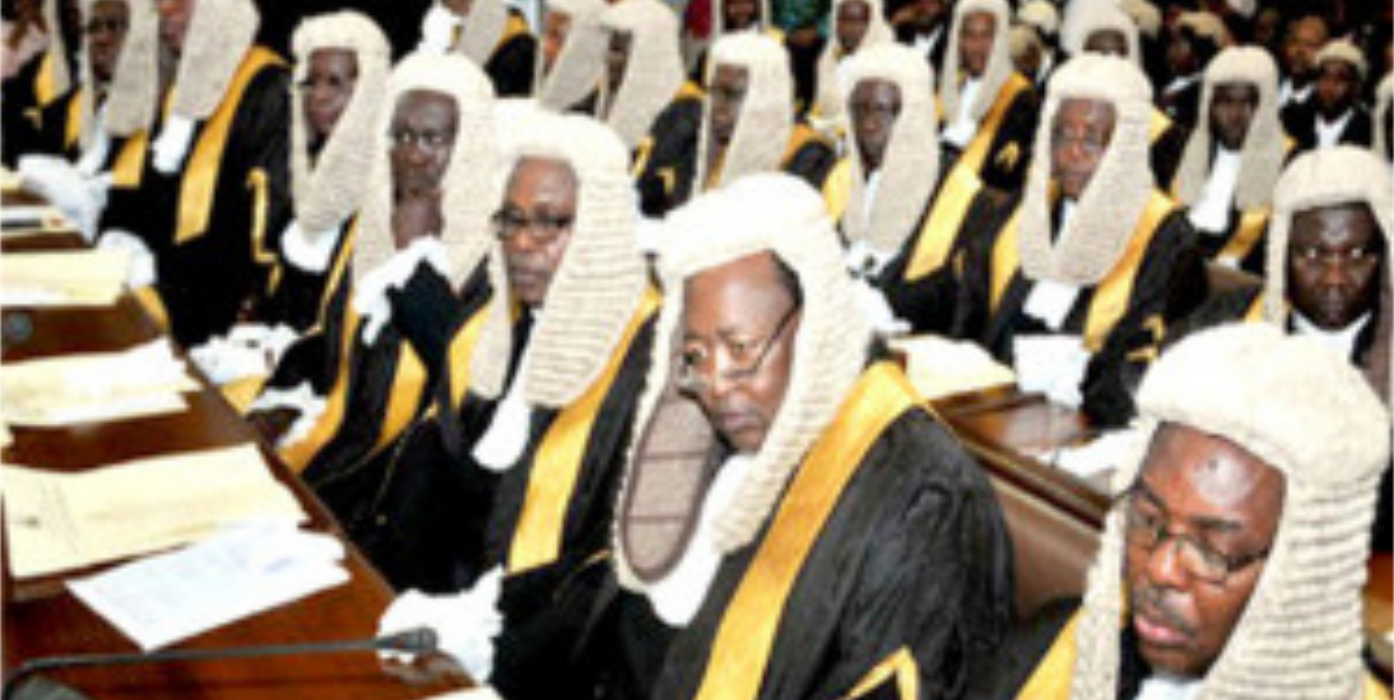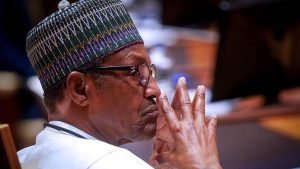
Worldwide, instances of executive and partisan meddling in the affairs of the judiciary are growing. These occurrences sometimes happen in countries otherwise regarded as stable democracies. Court packing in the United States of America, Hungary and Turkey have recently come to light with a puzzled world looking on. In India, Poland and Russia, sophisticated meddling and interference in the affairs of the judicature are on the increase with national and geo-political implications for citizens and allies. In China, the courts are on a short leash with the ruling party dictating acceptable limits for courts to work on questions of human rights.
Nigeria is not exempt from world trends as far as the judiciary is concerned. Unlike what obtains in most of the jurisdictions mentioned earlier, however, the factors at play in Nigeria are well beyond the executive and partisan politics. Religion, nepotism, systemic and structural flaws, sheer incompetence and a national economy in recession have all contributed so far to the death by a thousand cuts, that the judiciary is suffering from. In a widely divergent national terrain in which component units are not on equal economic footing, some courts are starving while some are choking from obesity. All Nigerian courts are overworked with dockets of sometimes up to sixty cases per judge. Cases run into years at the court of first instance and into decades between High Court and Supreme Court. Unless something drastic is done, the administration of justice in Nigeria will suffer systematic strangulation from the myriad challenges facing it.
For those watching the Nigerian judiciary, an arm of government often referred to as the last hope of the common man, the picture is quite depressing today. Once upon a time, the judiciary in Nigeria furnished the world with some of the most capable of legal minds. The World Court with its seat at the Hague sought out Justice Taslim Elias who eventually became President of that Court. In Africa, Justice Akinola Aguda rose to prominence at home and abroad serving in courts of superior jurisdiction in both territories, and ending an illustrious career as the Chief Justice of the nation of Botswana. Justice Adio of Nigeria served on the Gambian bench before ascending up the appellate court structure back home. The list of these sterling legal minds is long indeed but it appears, all of a sudden that the pool from which they emerged has since dried up or is so shrunken that singularity of the kind these worthies represented is now vanished.
At home and abroad, Nigerian judges have been caught on tape demanding bribes, negotiating gratification and transacting rulings. From a time when it was taboo to hear of a judge taking gifts from lawyers or litigants, it is now regular to learn of a petition or two against a judge over some underhand deal or the other. Far from the rarity it once was to have a Nigerian judge on trial for corruption, a simple search on the internet now yields a harvest of such instances complete with every kind of alibi and false pretence on the part of judges caught pants down. In one of the many modern sagas involving judges in Nigeria, the Economic and Financial Crimes Commission began probing the activities and bank accounts of former Justice Rita Ofili-Ajumogobia, fact and fiction compete for attention in the narratives from the accused to the prosecutor. The case spanned several years and involved damaging testimony by bank officers who testified to moving last sums of monies into the accounts of the judge on trial and into the accounts of her children.
Judges are, by constitutional provision, to be paid from the Consolidated Revenue Fund created under the Nigerian constitution. They are appointed by the executive arm of the state acting on recommendations from the judicial service commission of the various states and of the Federal Government. Over the years, religion and nepotism have found their ways into the deliberations of judicial service commissions in Nigeria. The results are what we see today. Whereas the twin criteria of integrity and soundness of legal reasoning used to be the overarching theme of appointments unto the bench, the country has seen an upsurge in religious pressure groups clamouring for equal representation in appointments to the bench. From the agitation of these religious groups, judges now occupy various levels of the judicial hierarchy on the strength of their religious affiliations. In the same vein, nepotism has found its way into the appointment of judges, so much so that the Public Law section of the Nigerian Bar Associations had cause very recently to comment on the number of children of serving senior judges recently appointed to the bench at the Federal Capital Territory of Abuja.
Contemporary developments in the judiciary from the High Courts to the Supreme Court are symptomatic of what is wrong with the system as a whole. A governor in the Niger Delta recently purchased top-of-the-line Range Rover vehicles for judges in the state he governs. Not done with his display of magnanimity toward the judges, a house or the sum of N150million, whichever the judge preferred, were provided each judge. All of these perks come outside the provisions of the Consolidated Revenue Fund. In the predictable scenario that an aggrieved person has a case against that state in the near future, it is unlikely that the judge before whom the matter is brought will soon forget the circumstances leading to his or her svelte automobile or well-appointed dwelling. The invasion of residences of some justices of the Supreme Court of Nigeria leading to the removal of the former Chief Justice of Nigeria and his replacement with another member of the Supreme Court without recourse to disciplinary procedure as stipulated by law in cases involving judges of superior courts of record has brought about lowered expectations of the impartiality expected from the Supreme Court.
In the wake of many rulings and judgements in election petition cases, the courts in Nigeria have come into the public eye over the course of the two decades since Nigeria returned to civil rule in 1999. Perhaps no species of proceedings bring out the dilemma of the judiciary in Nigeria as these cases tend to do. On the one hand, it is good for society to have peaceful recourse to law and order to resolve differences, even electoral differences, which politicians, left on their own, are wont to resolve by violence and intimidation. On the other hand, the fees charged by lawyers in these cases are so astronomically high that the litigants are inclined to ask for guaranteed outcomes before they or their parties shell out the monies to prosecute these cases. No lawyers worth the name gives confident assurances in these cases but over the years, lawyers, including senior advocates of Nigeria, have been disbarred for improper conduct and untoward relationships with judges in electoral cases.
More than regular constitutional, commercial, criminal or maritime cases, electoral disputes affect the balance of power in society with their outcomes. These cases shape society in ways that other disputes cannot and so they are rightly seen as high stakes both for parties directly involved and for the parties they represent. In Nigeria, there is a long line of cases in which utterances such as “my hands are tied” have issued from judges. In some other cases, judges have decided cases on a basis they themselves consider suspect and have pronounced that those cases should not serve as precedents in the future. These kinds of developments destroy the judiciary from within and destroy the credibility of an institution that should be impartial and above board. That they occur in the context of adjudication in electoral cases should worry every Nigerian.
The spectre of incompetence haunts the Nigerian judiciary as well. Over the years, the quality of education generally and of legal education specifically has lowered the bar such that the judicial service commissions charged with staffing the bench have had to make do with what materials they get. The commercial sector has won in the contest for the brightest young lawyers among whom judges are picked. It is a dire situation in some states of the federation where not enough persons qualify as lawyers to begin with. In the sixties and seventies, states were not particular about the state of origin of the candidates being interviewed for the bench. This has changed and a new insularity in states has meant an unwillingness to recruit from outside the state. The bench is seen, thus, as a locus of power which must not be ceded to a ‘non-indigene’ under any circumstances. The disastrous results take a while to register properly but those results come surely. They are what manifest today as a thoroughly lacklustre judiciary in need of redemption from itself, an arm of government in need of reinvention.
That there is decline in the judiciary is plain to see to both insiders and outsiders. There is an effort to get a more efficient judiciary in place – judges who can use office automation better, for example. Courts that have functional electronic registries worth talking about in the 21st century. These are commendable in themselves but sadly do not go far enough in addressing the obvious lapse into which the judiciary has fallen. What is needed are far reaching reforms which guarantee both quality of judges and a judiciary that is once again the cynosure of all eyes. One reform without the other will not work. The public, private businesses and the international community must see and be assured that there is indeed quality in the Nigerian judiciary. As a nation, we can no longer afford a situation in which the international business community is reluctant to invest in Nigeria because of legal proceedings that take forever to resolve. We cannot have a legal environment that shields the corrupt and incompetent at home when the same persons and businesses are punished abroad by courts abroad. We most certainly cannot afford a situation in which politicians reserve their energies and resources for getting guaranteed outcomes favourable to them in court instead of delivering tangible value to their constituencies.
The interesting twist to criminal proceedings against judges in Nigeria is how often the children of judges are involved in proceedings involving the parents. This is disturbing in itself and even more so when those children are legal practitioners themselves who might end up on the bench someday. If corruption is institutionalized this way, the rot deepens and accelerates with predictable consequences for the judiciary and society generally. The sad reality is that this is the situation today and we have not arrived at this point overnight.
Reda Also: Judge Dismisses Mailafia’s Application to Stop Police Invitation
With every passing year, the judiciary and the legal profession as a whole appears to lose legitimacy in the eyes of the public. The number of people in cities who would rather rely on enforcers from the streets or resort to self-help is frightening, all things considered. The growing popularity or arbitration and the growing trend to have commercial agreements with clauses that situate the UK or some other territories abroad as the seat of arbitration should there be a conflict of difference, is real cause for concern. The present nightmare for Nigeria involving a record-breaking arbitral award at the expense of Nigeria is case in point. The sheer incompetence involved in the entire case which is now like an albatross hanging from the neck of the country should make us call a halt to all shoddy work in judicial circles. These things have consequences for all of us and in fact for our generations still unborn.
There are infinitely more judges in Nigeria today than there were at independence in 1960 when the country got her independence. In spite of this numerical increase and despite the evolution of what might be described as Nigerian jurisprudence, the prestige of the judiciary and indeed of the entire legal profession has atrophied in such a way that scions of respectable generational law firms are choosing increasingly to be comedians, musicians, disc jockeys and even spoken word artists rather than pretend to be ministers in the temple of Nigerian justice. If this is not a parable worth pondering, we have to ask ourselves what else is.
Tade Ipadeola

